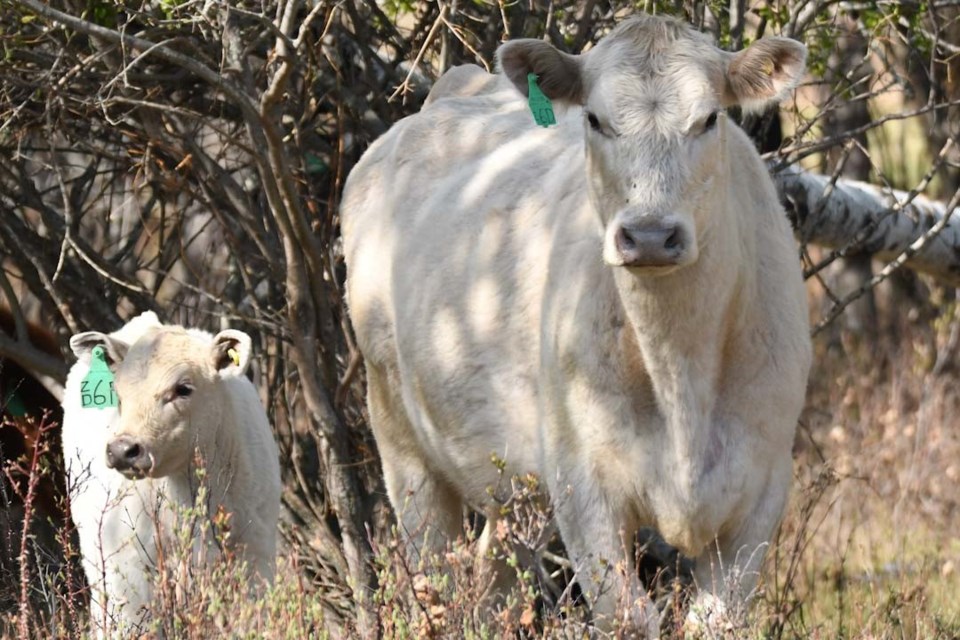SASKATOON╠řÔÇô╠řBacked by╠ř$2 million from the federal government and partner organizations,╠řUniversity of Saskatchewan (USask) researchers╠řaim to╠řmake╠řArctic pipelines stronger and safer, protect the food supply,╠řand improve╠řcrop processing╠řwith╠řcutting-edge technology.╠ř
Five research teams have been awarded a total of $1.08 million from CanadaÔÇÖs Natural Sciences and Engineering Research Council (NSERC) to lead the wide-ranging NSERC Alliance research projects. As well, partner organizations are contributing a total of $600,000 in cash and $340,000 in in-kind contributions to the projects.╠ř
ÔÇťThis╠řmajor╠řpartnered investment will╠řsupport╠řexciting USask╠řresearch╠řprojects╠řthat address complex challenges, create environmental and economic benefits, and contribute to CanadaÔÇÖs long-term competitiveness,ÔÇŁ╠řsaid USask Vice-President Research Karen Chad. ÔÇťThese collaborative projects will also train new researchers in areas important to Canada and our partners.ÔÇŁ╠ř╠ř
The new research projects╠řwith combined╠řNSERC and partner╠řfunding╠řare:╠ř
Developing high-strength, cold-tolerant steel for pipelines╠ř-╠ř$770,000╠ř
USask engineering researcher╠řJerzy SzpunarÔÇöworking╠řwith╠řEVRAZ╠řInc.╠řand CanmetMATERIALS Natural Resources CanadaÔÇöwill╠řdevelop╠řa new╠řprocess for manufacturing╠řhigh-strength steel╠řadapted to╠řlow-temperatures╠ř(-45oC)╠řfor╠řpipelines╠řin╠řnorthern╠řCanada╠řand╠řArctic areas╠řaround the world.╠řPipelines in╠řcold regions╠řface challenges╠řsuch as╠řterrain frozen by permafrost or gouged by sheets of ice. The╠řresearch╠řcould╠řimprove the safety of gas and oil transport,╠řopen a new market for Canadian manufacturers,╠řand reduce the environmental damage in╠řthe╠řcase of╠řa pipeline╠řfailure in a sub-arctic environment.╠ř
Using biotech to make animal feed processing cheaper and more efficient╠ř- $697,000╠ř
USask veterinary researcher Dr.╠řMatthew LoewenÔÇöpartnering with biochemist╠řMichele Loewen╠řat the University of Ottawa and Western Grains Research Foundation, Saskatchewan Pulse Growers, and Botaneco Inc.ÔÇöwill use cutting-edge biotechnologies to tweak the chemical structures of two enzymes important for removing bitter-tasting tannins from animal feed. The results will lead to more efficient and cheaper bioprocessing, yielding more palatable and safer animal feeds.ÔÇ»The research could have long-term applications for making new plant-based products for human consumption.╠ř╠ř
Improving anti-microbial use practices for the beef industry╠ř-╠ř$430,500╠ř
Working with the Beef Cattle Research Council (BCRC) and Alberta Beef Producers,╠řUSask veterinary researcher╠řDr.╠řCheryl Waldner,╠řwho holds the╠řNSERC/BCRC Industrial Research Chair in One Health and Production-Limiting Diseases,╠řwill╠řexamine╠řchanges to╠řantimicrobial use and resistance╠řin cow-calf╠řoperations╠řresulting from╠řrecent╠řfederal regulations╠řrequiring╠řveterinary╠řprescriptions╠řfor╠řthe sale of all medically important╠řantimicrobials for╠řuse╠řin╠řfood animals.╠řThe results will╠řinform╠řbeef industry╠řstewardship practices╠řthat╠řminimize antimicrobial resistance╠řand support╠řenvironmental╠řsustainability,╠řprotecting public health, animal health,╠řand animal welfare.╠ř
Using nanotechnology to decontaminate eggshells╠ř-╠ř$110,600╠ř
Partnering with the Canadian Poultry Research Council and Saskatchewan Egg Producers, a multi-disciplinary╠řUSask╠řteam led by╠řLifeng Zhang╠ř(engineering),╠řShelley╠řKirychuk╠ř(medicine), and╠řKaren╠řSchwean-Lardner╠ř(animal and poultry science) will develop a chemical-free, nanotechnology-based surface decontamination method for treating eggshells to control microbial contamination. The results will improve food safety and reduce environment impacts.╠ř
Making soil management╠řsmarter╠ř- $62,600╠ř
To precisely manage their crops, producers need detailed information about how soil properties vary across the field.╠řHow much information is the right amount?╠řSoil scientist╠řAngela╠řBedard-Haughn╠řand her team,╠řworking with╠řCropPro Consulting,╠řwill╠řcombine╠řmachine learning,╠řpredictive soil mapping techniques, and╠řstrategic╠řfield soil sampling╠řto determine╠řa cost-effective soil sampling strategy. The results could help make precision soil mapping╠řwidely╠řaccessible to producers.╠ř
More information╠řon╠řNSERCÔÇÖs Alliance╠řgrants╠řis╠řavailable here:╠ř
╠ř




